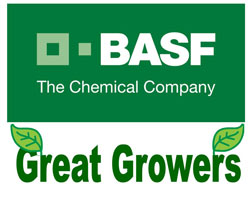 The last crop progress report on the corn harvest was issued by USDA on November 5, the earliest end to the reporting season since 1985 when they first started tracking the harvest progress. But, as of November 7, Kip Tom of Indiana was one of the growers with the 5% of corn nationwide that was not yet in the bin. “That’s a good thing,” Kip said during an interview at the National Association of Farm Broadcasting Trade Talk. “We’re maximizing the use of our equipment and we had higher yields than we expected.”
The last crop progress report on the corn harvest was issued by USDA on November 5, the earliest end to the reporting season since 1985 when they first started tracking the harvest progress. But, as of November 7, Kip Tom of Indiana was one of the growers with the 5% of corn nationwide that was not yet in the bin. “That’s a good thing,” Kip said during an interview at the National Association of Farm Broadcasting Trade Talk. “We’re maximizing the use of our equipment and we had higher yields than we expected.”
Kip gives the credit for his higher than expected yields for both corn and soybeans to the use of BASF Headline, despite the incredibly dry weather. “Doesn’t matter if it’s a low yield or a high yield environment, it (Headline) paid its way,” said Kip. “So we will continue to use that in the future no matter what the weather that Mother Nature gives us to deal with.”
 Tom Farms covers land in seven counties in northern Indiana, some of which Kip says was right in the middle of the worst drought region. “In early July, we had beans at R3, R4 barely knee-high,” he explained. “After we applied the fungicide we recognized an average yield of 67 bushels per acre on about 4000 acres of beans.”
Tom Farms covers land in seven counties in northern Indiana, some of which Kip says was right in the middle of the worst drought region. “In early July, we had beans at R3, R4 barely knee-high,” he explained. “After we applied the fungicide we recognized an average yield of 67 bushels per acre on about 4000 acres of beans.”
Kip, who is one of the AG CONNECT Expo Masters & Mavericks, says weed control was a big challenge with the 2012 drought but he is most concerned with resistance to glyphosate so he is looking forward to the impending release of dicamba tolerant technology. “We’re seeing weed resistance pop up clear up in Michigan,” Kip said.
Kip says they intend to “stick to our game plan” in preparing for the 2013 season. “We’re going for a bumper crop and we’re going to make sure that we use all the resources we have available to us to produce that bumper crop,” he said.
Listen to my interview with Kip here: Kip Tom interview
It has been great following this BASF Great Grower through the season this year.
We first talked to Kip in April when planting just started and he was well ahead of schedule.
Then in June we talked to him and his son Kyle and they said it was “definitely dry.”
By the time we caught up with Kip and his grandson Kamden in September at the Farm Progress Show, it was really dry. “In my 39 years of practicing this occupation, I can very easily say this is the most challenging year we’ve ever faced in regards to dryness and high temperatures,”

